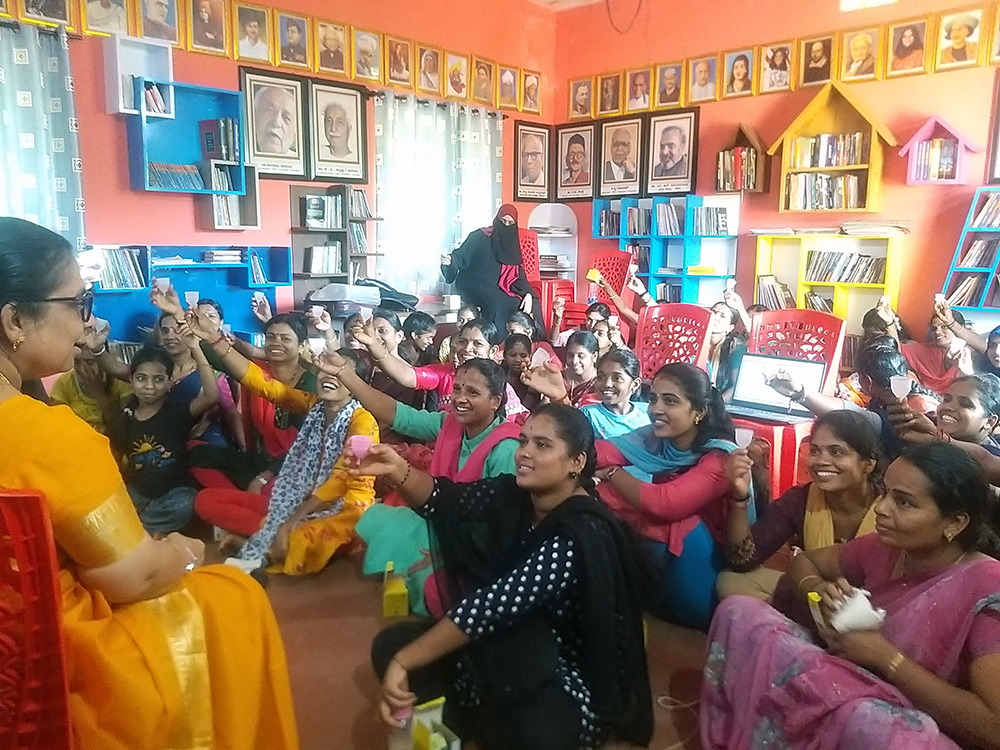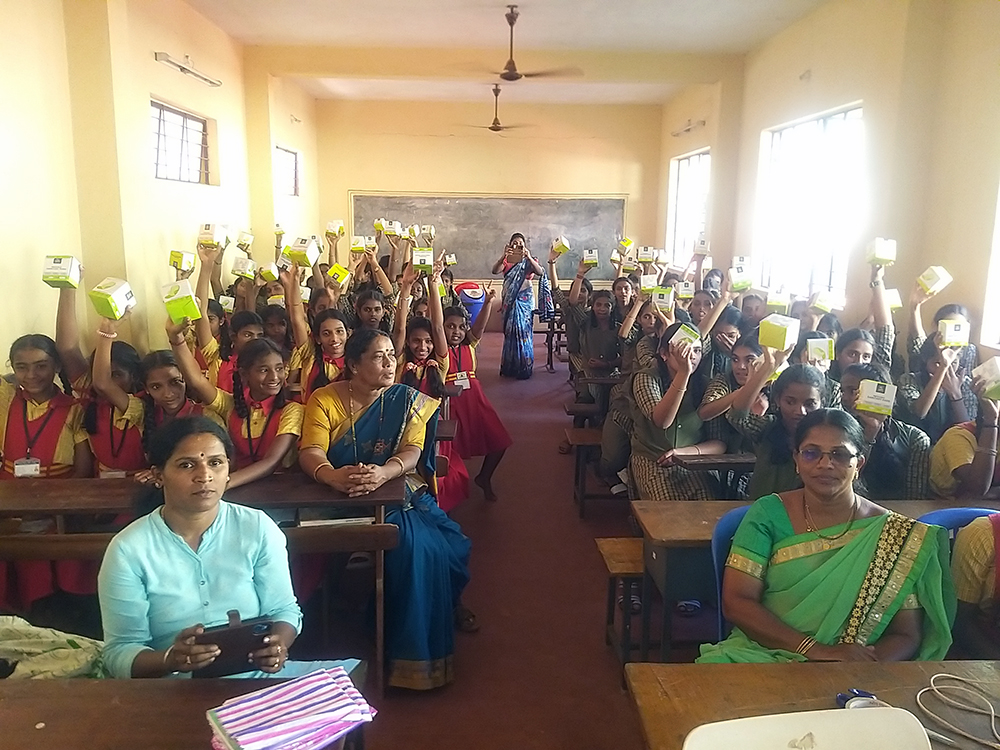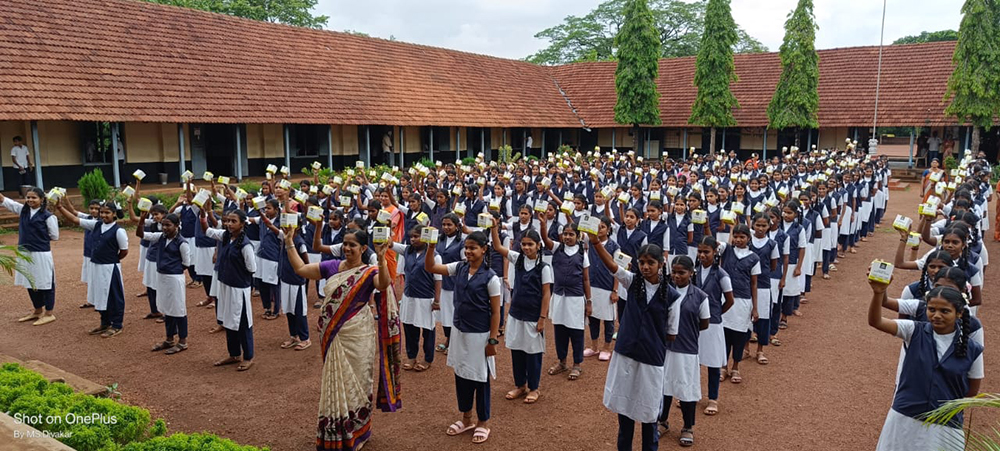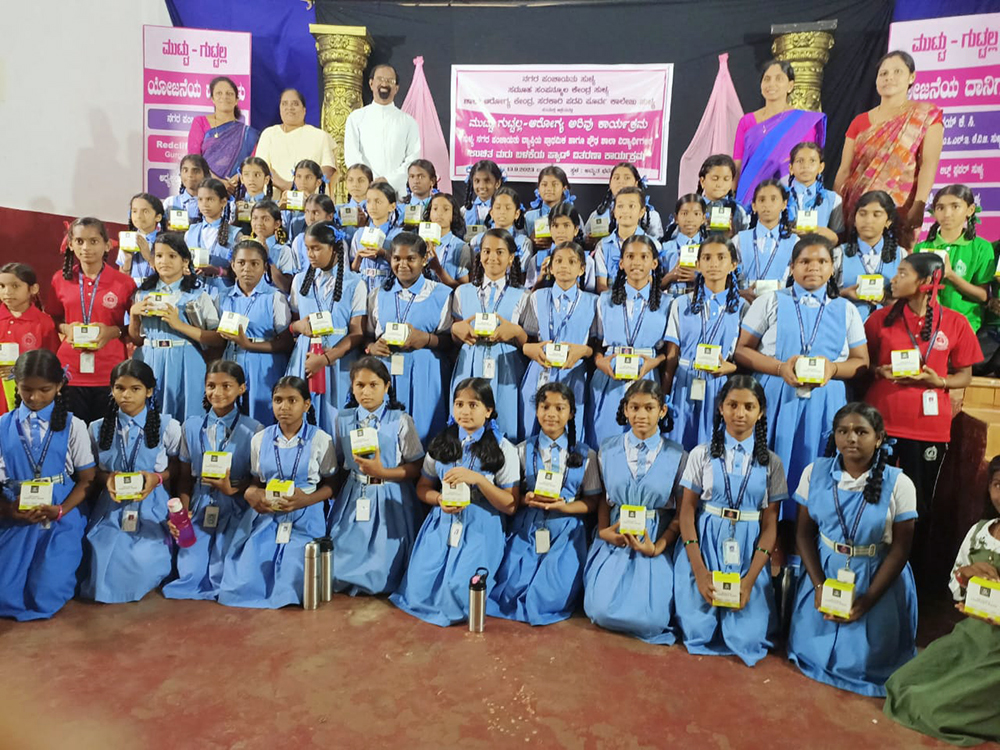Jalajakshi KD




Project Period: One year
This Foundation Project implemented by IFA will engage sixth grade students of the Government Higher Primary School, in Kolcharu, Sullia Taluk, Dakshina Kannada district in a project titled Chandada Badukige Ondu Putta Udugore (A Small Gift for A Beautiful Life) in exploring and educating girls, boys and the community about female and male anatomy as well as menstrual cycle by connecting this to their science and social science curriculum.
Jalajakshi KD is an Assistant Teacher from Sullia in Dakshina Kannada district. She tries her best to connect with children and the community by conducting various events and providing school bags, uniforms, and books which attract children to come to school. During her earlier project, implemented by IFA she engaged her students in exploring texts from the school syllabus and interpreting it through theater in Kannada and English Language. Given her experience she is best placed to be the Coordinator of this Foundation Project of IFA.
Around 12% of young women do not know the exact cause of menstruation. Unfortunately, even teachers in schools often skip the topic of reproductive health or do not discuss the topic openly because they are intimidated by the presence of students (whether male or female) in the classroom. Similarly, due to lack of awareness, women still believe what their elders have taught them about menstruation. Access to menstrual hygiene is one of the major challenges faced by women in the country. Expensive pads or low-quality pads for cheaper price, lack of disposal system, which ends up clogging the drainage, and the taboos around periods make it difficult for women to sun-dry the reusable cloth in the open. To address these shortcomings at least at the local level, Jalajakshi is engaging her students in a series of street plays, lectures and creative writing workshops.
“Education plays an important role in bringing positive change in the society. In this context, menstruation should be taught as a subject to both boys and girls. The issue should be discussed in teacher trainings to sensitise and make teachers aware of the importance of menstrual health. Teachers in schools should openly discuss the topic of menstruation and explain it for better understanding and to reduce the taboos associated with periods. It is a challenging project to simultaneously impress social science and science subjects. This is the change that urgently needs to happen in our villages” – Jalajakshi in her own words.
This project will be implemented with two key focuses. On one hand, a series of lectures will be held to introduce the human anatomy and menstrual cycle; while on the other hand, writing workshops will also be held to increase language skills of children Jalajakshi will also engage theatre experts to lead street plays with students.
Another facet of Jalajakshi’s work schedule is noteworthy. During the project she will encourage students to write letters to their friends, relatives and others to share the knowledge received about menstruation from the lecture series. She believes that these engagements will increase both the awareness and creativity of the students. Jalajakshi will also create awareness for this project at cluster level through debates, painting and street play competitions on menstruation. These competitions can be seen as a good effort to take the main aspirations of the project from school to community that will also include the participation from other school staff.
The outcomes of the project will be a series of performances, an exhibition and a publication. The Project Coordinator’s deliverables to IFA with the final report will be publication, photographs and video documentation of the entire project including the performance and exhibition.
This project suitably addresses the framework of IFA’s Arts Education programme in the manner in which it attempts to connect students and schools to the cultural knowledge of the local communities they live in.
IFA will ensure that the implementation of this project happens in a timely manner and funds expended are accounted for. IFA will also review the progress of the project at midterm and document it through an Implementation Memorandum. After the project is finished and all deliverables are submitted, IFA will put together a Final Evaluation to share with Trustees.
